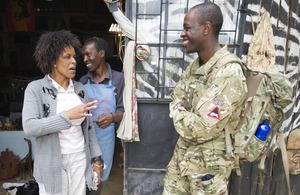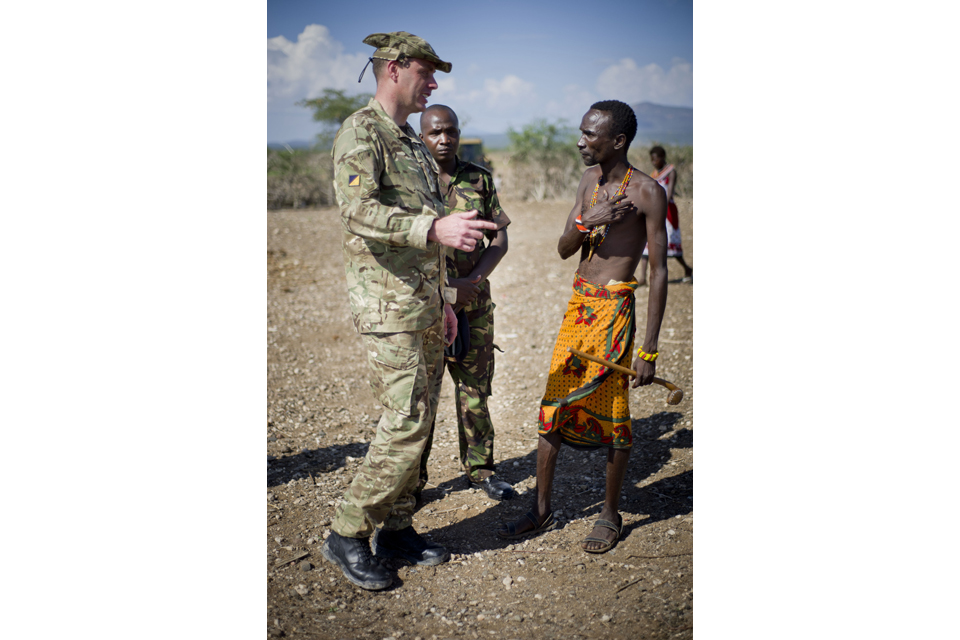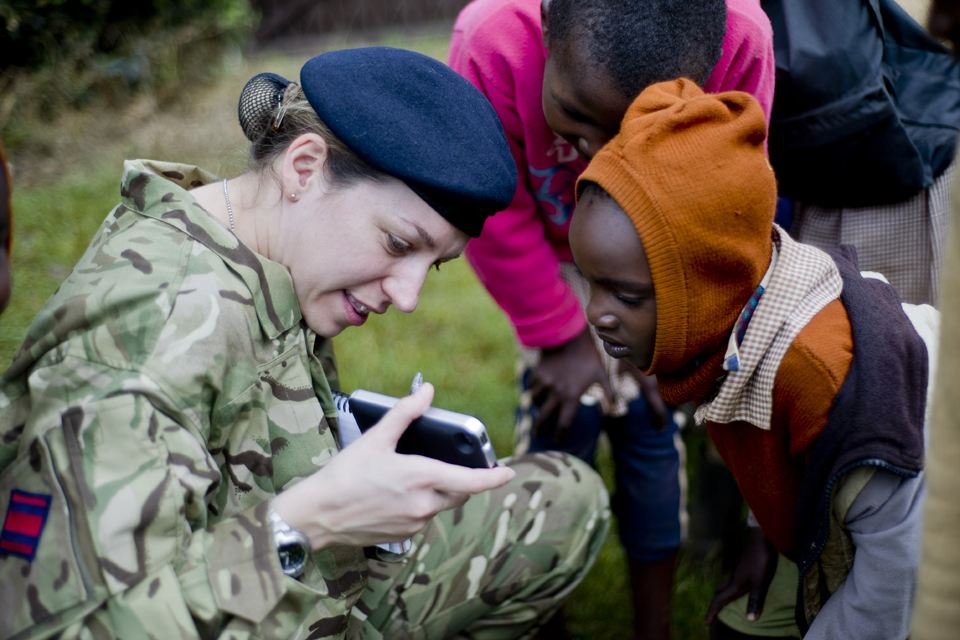MSSG exercise looks at conflict prevention
The Military Stabilisation Support Group has completed a two-week exercise in Kenya to test a new concept in upstream conflict prevention.

Captain Cyrus Karumba chats to local Kenyans during Exercise Civil Bridge 12
Upstream conflict prevention seeks to understand and respond to the underlying causes of conflict and instability before they result in violence.
Exercise Civil Bridge 12, an annual overseas training exercise, has been the first opportunity for the MSSG to experiment with the concept of a Security Assistance Group.
It brought together the military components likely to form this proposed military organisation, building on the lessons learned from operations in Iraq and Afghanistan.
During Exercise Civil Bridge 12, 3 teams of stabilisation specialists deployed to northern Kenya where the British Army Training Unit Kenya (BATUK) currently trains soldiers preparing to deploy on operations to Afghanistan.
Their mission was to understand the environment in which the BATUK operates and the impact of its activities on local communities.
Regular and reservist stabilisation specialists from the MSSG combined forces with civil servants from the UK Government’s Stabilisation Unit, communications specialists from the Media Operations Group (Volunteers), Royal Engineers, and public health experts from the Army Medical Directorate.

A member of the Military Stabilisation Support Group engaging with a Kenyan man during Exercise Civil Bridge 12 [Picture: Crown Copyright/MOD 2012]
The exercise was also supported by elements of the Defence Cultural Specialist Unit and 15 (UK) Psychological Operations Group.
Commander of the Military Stabilisation Support Group, Colonel Alan Richmond, said:
We’ve got a broad range of capabilities but we’re all coming together to experiment with how we would work together and inform the whole development of the Security Assistance Group.
It’s about getting out and doing that outreach and engaging in a different environment that you’re unused to with a cultural environment that is also unfamiliar.
This is absolutely bread and butter training for members of both the Military Stabilisation Support Group and all those entities that will form the Security Assistance Group, and it is something that you really cannot replicate on Salisbury Plain because you don’t have those cultural issues and you don’t have those linguistic issues either.
There is an awful lot to understand here, so I think this sort of exercise is absolutely crucial to what we the UK and the British Military wish to do in terms of upstream prevention overseas in the future.

Captain Martha Fairlie of the Military Stabilisation Support Group chats with local children in Kenya [Picture: Crown Copyright/MOD 2012]
Cherry Roberts was one of 4 civil servants from the Stabilisation Unit who were integrated with the military teams on Exercise Civil Bridge 12.
She said the exercise would add to their expertise:
It’s part of our core training. We want to focus more on upstream crisis response but we also need people who are ready to deploy should a crisis erupt.
I would normally be a civil servant wandering around Whitehall, but it’s really important for me to get out into the field and understand how the decisions we make impact on the ground.
Major Jem Blades, an MSSG reservist, was leading the team operating in the Nanyuki area. He said the combination of different skill sets available on the exercise worked very well:
It fell out quite nicely with the people that we had; for example we had a Member of Parliament with us and also a civilian who specialised in the politics side, so we sent those two off towards the politics side, and the other things fell out quite nicely along those lines too.
The creation of the Security Assistance Group was announced by the Ministry of Defence in July 2012 as part of the Army 2020 proposals, and proposes to bring together the ‘soft’ effects capabilities of the MSSG and other units within the British Army.